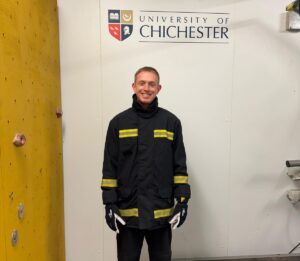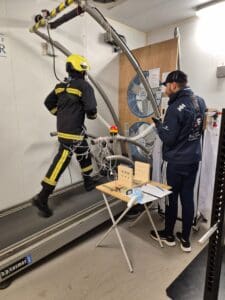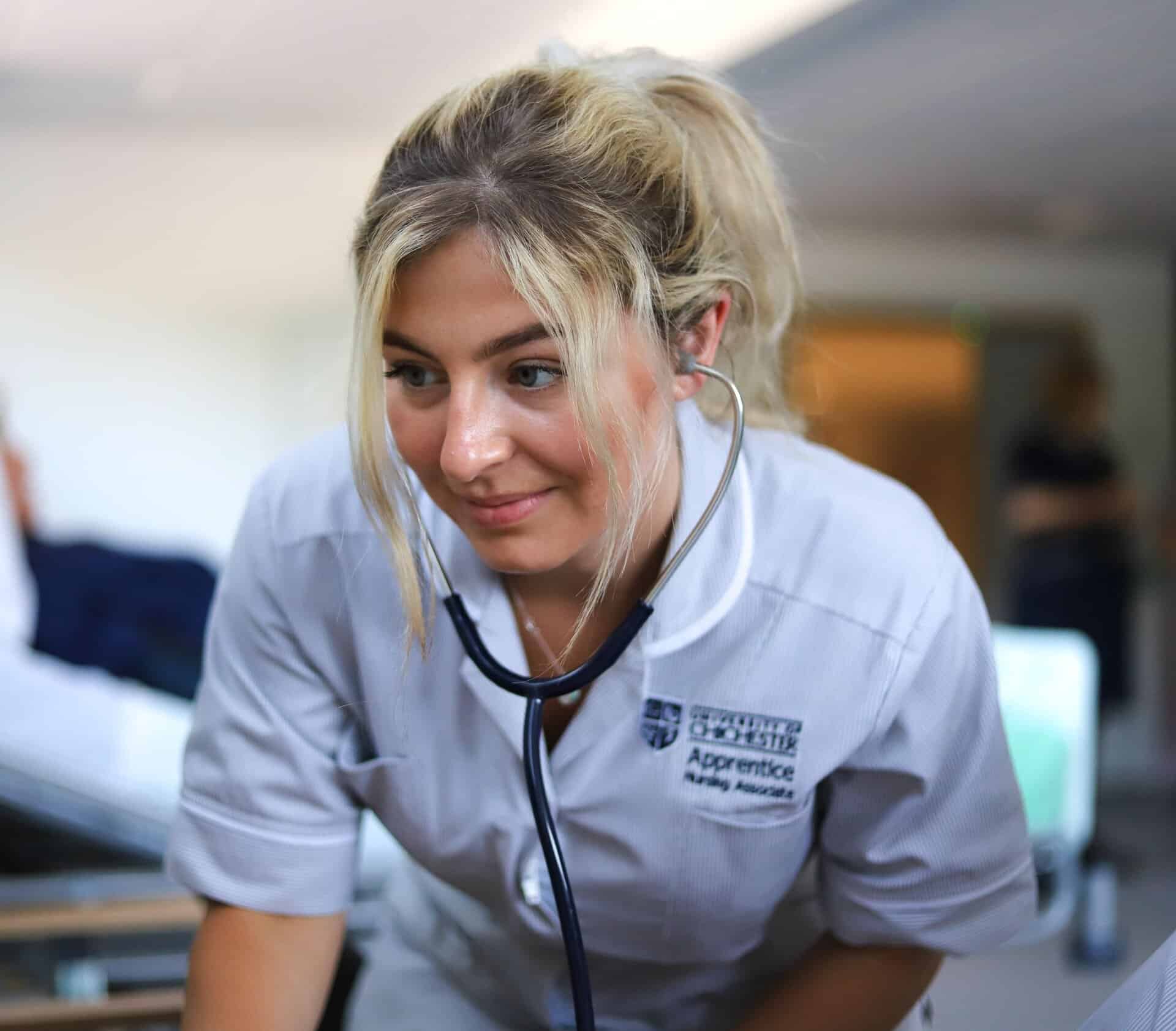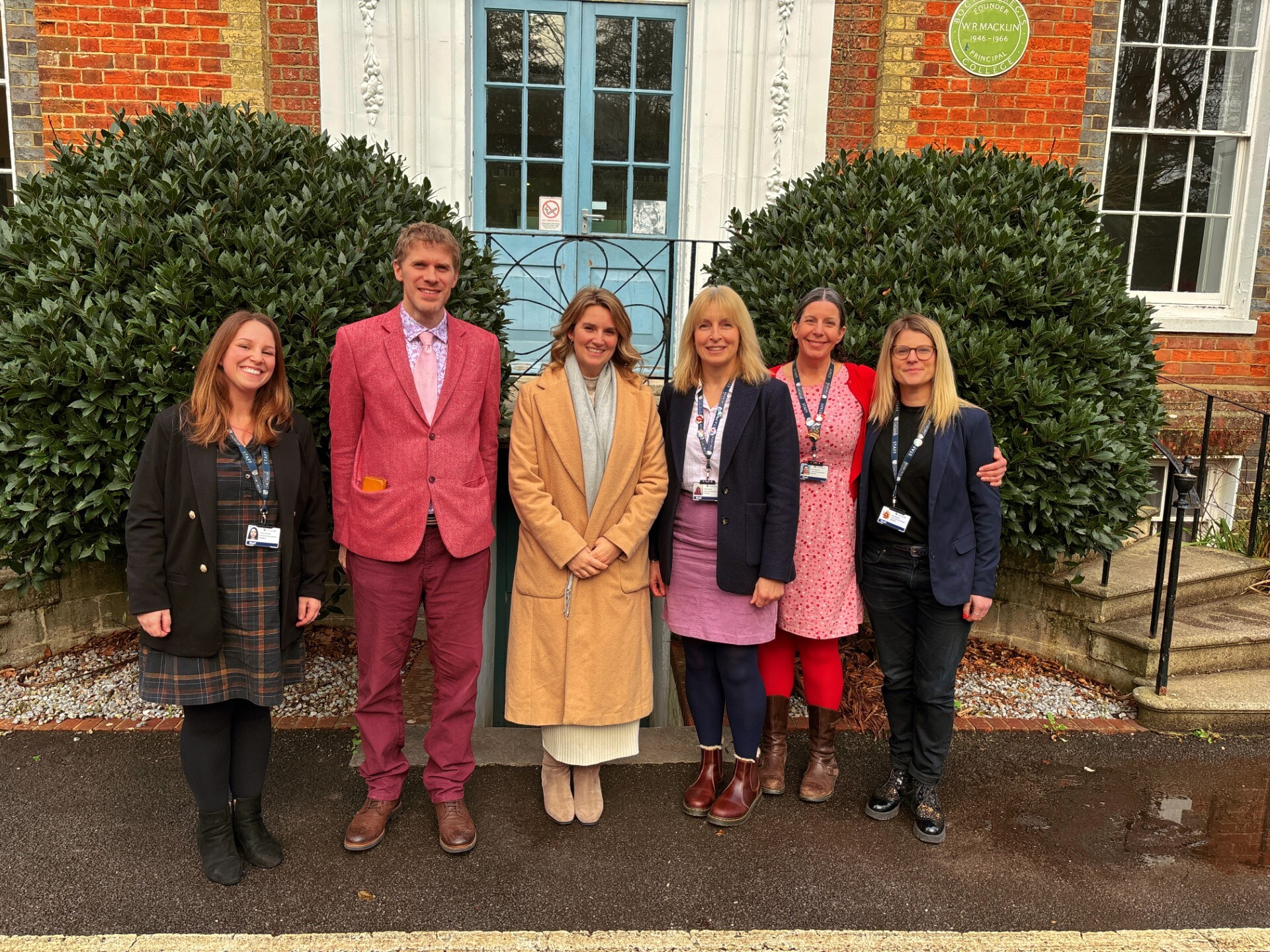Research on the effects of cold climates on firefighter performance to help search and rescue teams

Two postgraduate students are using the University of Chichester’s environmental chamber to research the physical and cognitive impact of cold climates on firefighters undertaking search and rescue task simulations.
Marcus Peach (MSc Sport & Exercise Psychology and PhD student) and Kamran Ewbank (MSc Sport & Exercise Physiology) were approached by Dr Andy West, a Senior Lecturer in Sport and Exercise Physiology, and on-call firefighter. One aspect of a firefighters’ job is search and rescue, and they can be deployed in the UK and internationally.
“With growing incidents of natural disasters in different climates, there needs to be research in colder conditions – there’s a lot of research on firefighters in hot conditions obviously,” Marcus said.

The University’s environmental chamber allows researchers to adapt the temperature and altitude in controlled conditions – with the ‘heat’ element often used by athletes training for desert marathons.
In this research, participants are being tested at a ‘normal’ 5 °C temperature and then at minus 10 °C, to mimic colder climates you might find in northern Scotland, northern Europe, or Asia, where UK firefighters have been previously deployed.
“We then look at the differences in physical and cognitive functions in both settings,” Marcus explained. “Kam is taking the physical and I’m working on the cognitive, measuring reaction times and short- and long-term memory.”
The tasks participants do in the environment chamber are designed to replicate what search and rescue operatives may experience in the real world. So, a memory exercise involves studying a map and being asked to recall information on it later. A physical test includes pulling along a 55kg bag – similar to the weight when a casualty is moved by a pair of firefighters during unaided rescue.
The pair are part way through the research, but a pattern is already emerging.
“Physical performance is reasonably unchanged in both conditions,” Marcus said. “Cognitively it looks more challenging in the colder conditions – but we’re still early days.”
“If we show a reduced performance in the colder climates we can suggest mitigation strategies through clothing, equipment and better training, exposing personnel to the cold and get them used to it or recommend that personnel on deployment need to be cycling in and out. This could take the form of suggesting standard operating procedures”
The research should be concluded by June, and the pair will share their findings soon after.
Dr Andy West, Senior Lecturer in Sport and Exercise Physiology, said: “We can be forgiven for not associating exposure to cold environments as being detrimental to firefighter operational effectiveness. However, the role of a firefighter has expanded beyond just fighting fires to include a broader range of emergency responses. We hope the outcome of this research can inform guidance to enhance firefighter performance in time critical rescues.”
Professor Sam Blacker (Professor of Exercise Physiology and Nutrition) and Dr Jenny Smith (Reader in Performance Psychology) are working with Dr Andy West to co-supervise the project.
Professor Blacker said: “The work being conducted by Marcus and Kamran is contributing to a wider part of research and consultancy activity at the University of Chichester being delivered by Sam, Jenny and other colleagues through the Occupational Performance Research Group (OPRG). The OPRG support student projects and placements so that they can work with researchers at the University which helps students consider end-users and make their work have real-world impact.”
The OPRG specialises in delivering multi-disciplinary research and consultancy to enhance the selection, performance, protection and health of personnel working within physically demanding occupations.
To find out more, visit: https://www.chi.ac.uk/research/centres/centre-for-health-and-allied-sport-and-exercise-science-research-chaser/occupational-performance/





